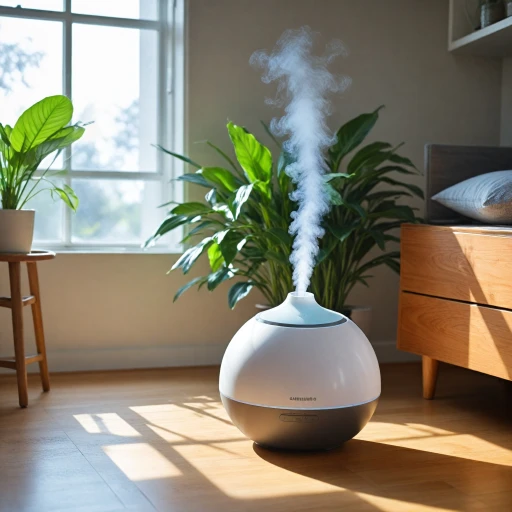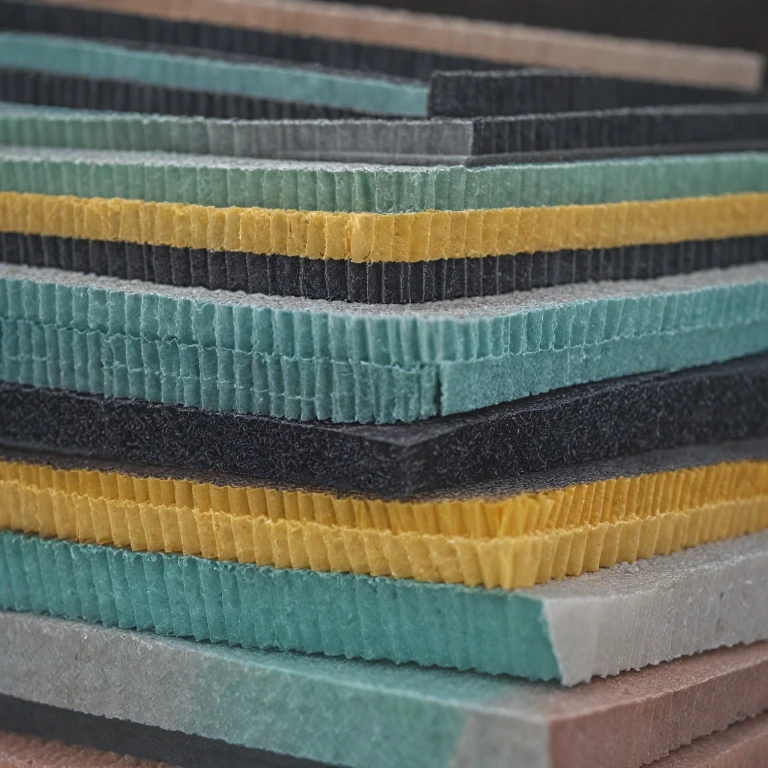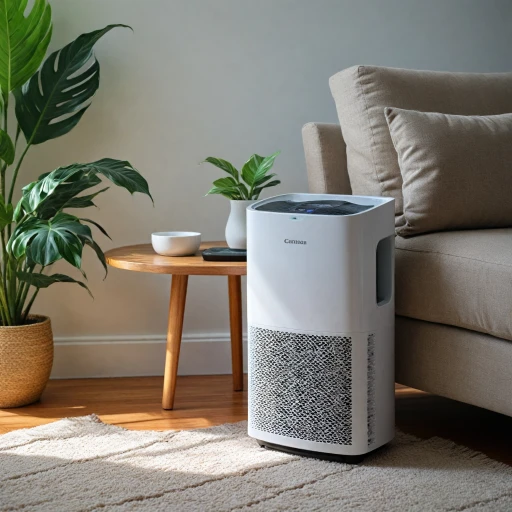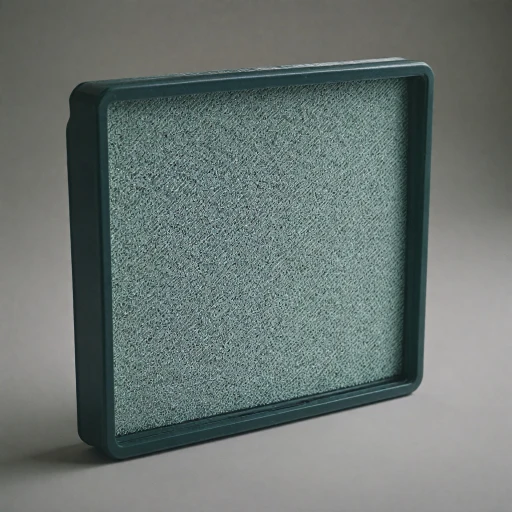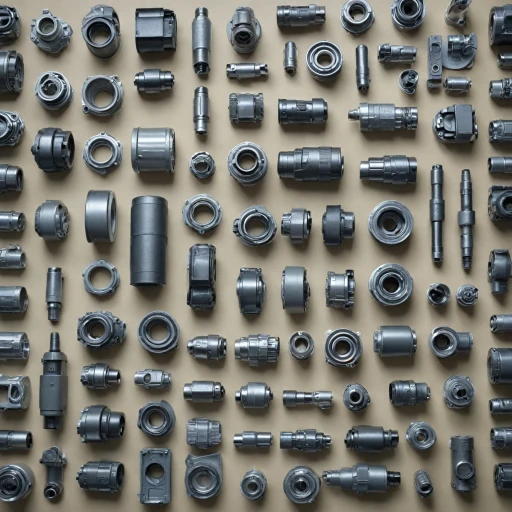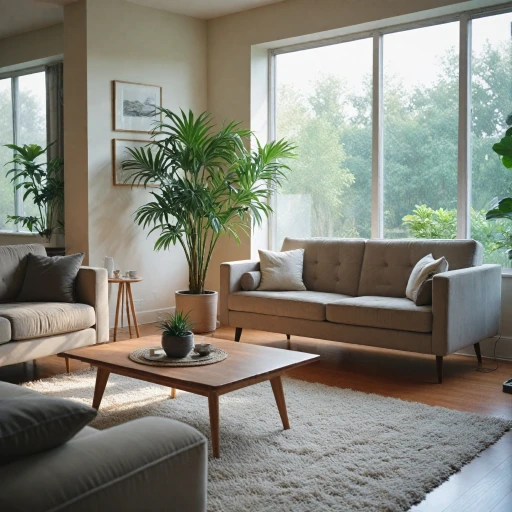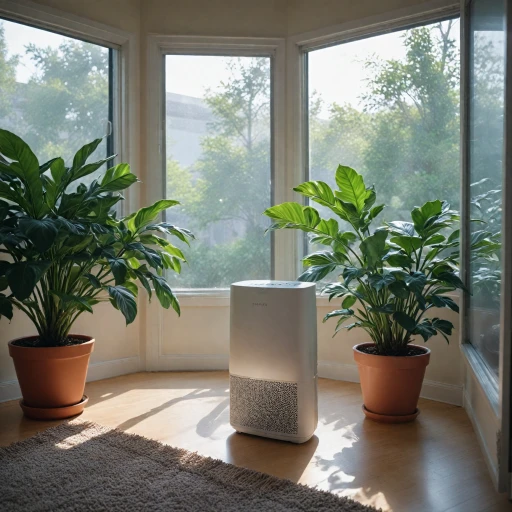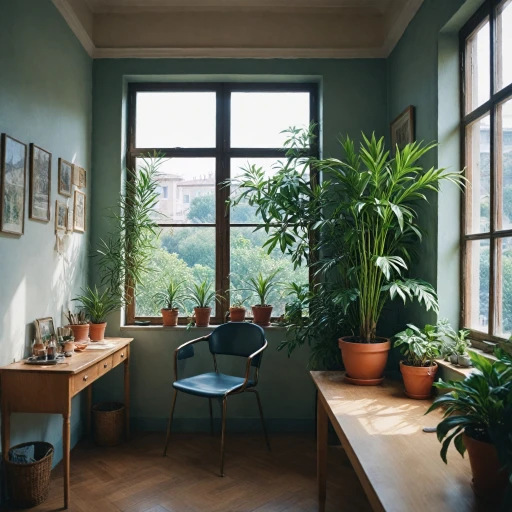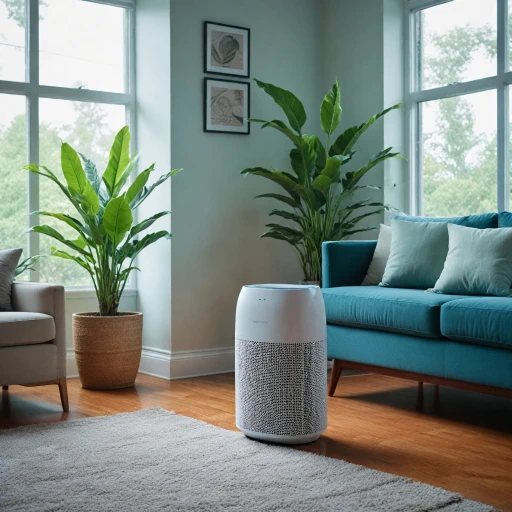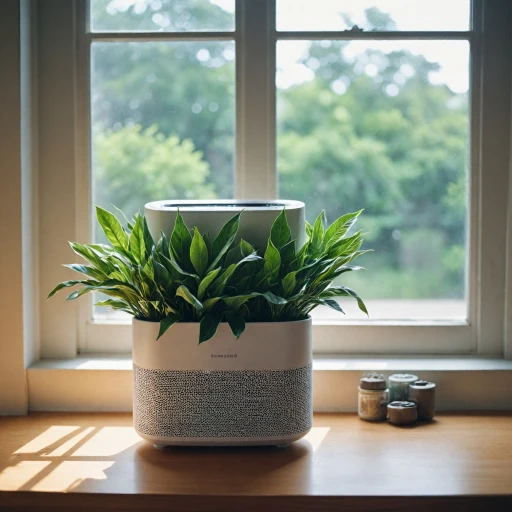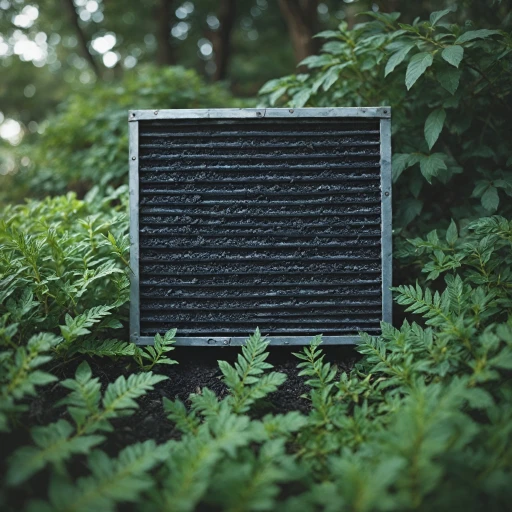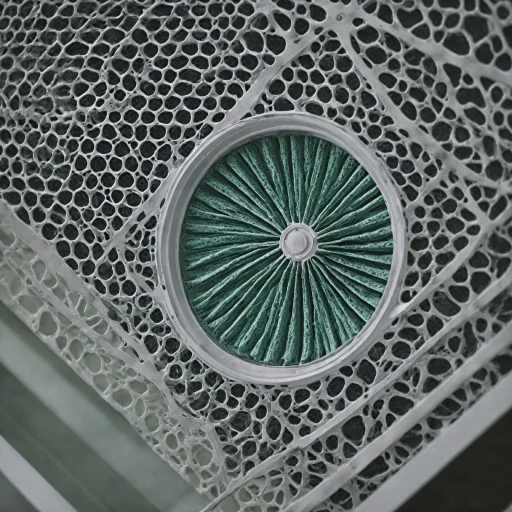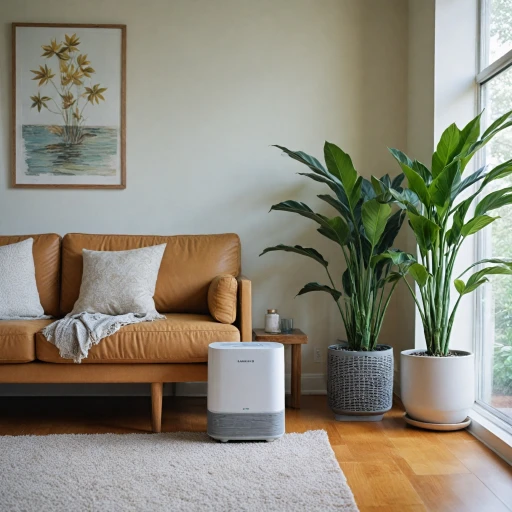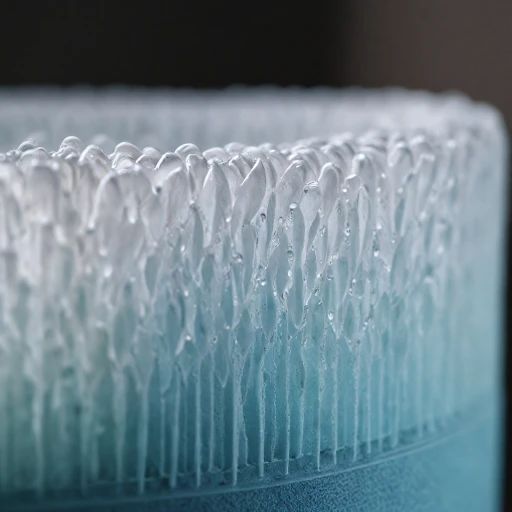The Role of Filters in Air Cleaners
Understanding the Crucial Role of Filters in Air Cleaners
Filters play an indispensable role in the function of air cleaners. They are the primary component responsible for trapping and removing a variety of pollutants from the air we breathe indoors. Whether it's dust, smoke, allergens like pollen or pet dander, the right filter ensures that these particles are efficiently captured, making the air cleaner and safer for everyone in the room.
The air filter within any air purifier unit acts as a barrier, capturing unwanted particles before they circulate back into your living environment. For example, replacing the filter in your Therapure air purifier is crucial not just for maintaining air quality, but also for ensuring the unit functions optimally. The efficiency of air purifiers largely depends on the type and quality of filters used.
Several filters are available, each addressing specific air quality concerns. HEPA filters are renowned for their ability to capture higher percentages of small particles, including true hepa variants which are even more efficient. Specialty filters such as those from brands like Aprilaire and Blue Pure target specific contaminants such as allergens or smoke, enhancing the air quality based on your unique needs.
To justify the price, regular or sale, of an air purifier or its replacement filters, it’s necessary to consider the unit's performance and the cost of maintenance. The right filter selection can influence both unit price and replacement filter expenses. Regularly assessing the condition of your filters and opting for a subscribe save option for replacements can lead to long-term savings and ensure continuous air quality improvement.
Types of Filters Used in Air Cleaners
Exploring Different Types of Filters
When it comes to air purifiers, the filter is truly the heart of the unit. It's essential to understand the variety of filters available to make an informed decision about which one might best suit your needs.
- HEPA Filters: Widely recognized for their efficiency, HEPA filters (High-Efficiency Particulate Air) can trap up to 99.97% of particles as small as 0.3 microns. They're perfect for removing allergens from the air, making them a popular choice for allergy sufferers. Brands like True HEPA and purifiers from Aprilaire often include HEPA filters as a standard, though their price can be steeper.
- Pre-Filters and Activated Carbon Filters: Before air hits the HEPA filter, it usually passes through a pre-filter, which captures larger particles, thus extending the life of the primary filter. Activated carbon filters are excellent for absorbing odors from smoke or pets. You'll often find blue pure units offering this combination, enhancing air quality particularly well.
- Specialized Filters: Some filters are designed for particular needs, such as handling smoke or specific allergens. These often merge HEPA technology with additional special layers tailored for certain pollutants.
Replacement plays a key role in maintaining efficiency — knowing the right time to replace your filter can be crucial, otherwise, you might not get the clean air you rely on. Depending on usage and filter type, replacements may need to occur regularly, sometimes even on a subscription basis to save cost and effort.
For further insight into replacing your purifier filter and how crucial this step is,
click here to learn more about the specific processes involved. Doing so ensures you maintain high air quality in your room without breaking the bank on regular sales and replacements.
Choosing the Right Filter for Your Needs
Finding the Perfect Fit for Your Air Purifier
Choosing the right filter for your air purifier can significantly impact its performance, efficiency, and the air quality in your home. With a variety of filter types available, it's essential to understand which one suits your needs best.
- HEPA Filters: Known for their high efficiency, True HEPA filters are a popular choice. They capture up to 99.97% of particles as small as 0.3 microns, making them ideal for removing allergens like dust, pollen, and smoke. Brands like Aprilaire offer HEPA filters that fit various units.
- Activated Carbon Filters: These are excellent for eliminating odors and absorbing harmful gases. If you're sensitive to smells or live near sources of smoke, adding an air cleaner with an activated carbon layer might be beneficial.
- Pre-Filters: These extend the lifespan of the other filters by capturing larger particles. Regular maintenance and replacement of the pre-filter can improve the efficiency of your air purifier and prolong the main filter's usage.
When choosing a filter, consider the size of the room and specific concerns like allergens and smoke. The size of your air purifier unit also determines the unit price and availability of replacement filters, like those available in Blue Pure series. Regular stock checks help ensure that you always have a replacement filter.
Opting for subscription services such as "subscribe & save" can also offer a convenient way to manage replacement cycles, often coming at a reduced sale price compared to the regular price.
To further explore the benefits of different filter types, you can learn more about the 'role of humidification filters' in maintaining air quality through
this detailed guide. This will enrich your understanding of how comprehensive filtration can enhance overall air quality in your living spaces.
Maintenance and Replacement of Air Cleaner Filters
The Importance of Regular Maintenance for Your Air Cleaner Filters
Maintaining and replacing the filters in your air purifiers is crucial for optimal performance and air quality in your room. Over time, air filters, including true HEPA and pre-filters, collect dust, allergens, smoke particles, and other pollutants. To ensure they're functioning efficiently, it's essential to keep a close watch on their condition and replace them as needed.
- Frequency of Replacement: Regularly replacing your air purifier's filters, such as Aprilaire or Blue Pure, ensures that the unit continues to trap pollutants effectively. Depending on usage and environmental conditions, most filters have a recommended lifespan provided by the manufacturer.
- Signs That Point to Replacement: If you notice a reduced airflow or persistent allergens in the air despite regular cleaning, it might be time for a replacement filter. Some units come with indicator lights to notify you when a change is needed.
- Choosing Replacement Filters: When it's time for a new filter, ensure you purchase the correct type for your unit. Opting for genuine stock filters, like true HEPA replacements, maintains the purifier's efficiency.
- Cost Considerations: While replacement filters might have a higher unit price, subscribing to a 'subscribe and save' service can help manage costs, especially if you're buying them at regular intervals. Monitor sales or discounts to get the best price.
Regular maintenance not only extends the life of your air cleaner but also guarantees that it continues to enhance the air quality in your living space. For more insights on maintaining your air purifiers, refer to other related articles and resources.
Impact of Filter Quality on Air Purifier Efficiency
How Filter Quality Impacts Air Purifier Efficiency
When selecting an air purifier, the quality of its filters can greatly influence its performance. An effective filter, such as a true HEPA filter, is designed to trap minute particles including allergens, smoke, and other pollutants, enhancing the purifier's ability to clean your room's air thoroughly.
The caliber of an air filter is crucial; high-quality options such as those from Aprilaire or Blueair typically capture more particles than less refined alternatives. Investing in superior filters can translate to better air quality in your living environment.
Regular replacement of filters is essential too, as clogged filters can restrict airflow, causing the unit to work harder than necessary, leading to decreased efficiency and potentially higher energy costs. Options such as subscribe and save can make these replacements more convenient and possibly affordable.
Furthermore, the economic implications of filter quality shouldn't be overlooked. While high-quality filters may come with a higher initial price, the long-term health benefits and efficiency gains often justify the cost. Economical solutions, like opting for a sale price or finding a reliable used model, can help keep costs down without compromising on air cleanliness.
While considering a purifier unit, look into consistent replacements to the pre-filter, HEPA, and other integral components, which ensure the air cleaner maintains its expected performance over time. Remember, a filter’s quality doesn’t only affect how clean the air feels; it also impacts how efficiently your air purifier operates. Opting for unit price over regular price, especially during a sale, can provide a cost-effective avenue for maintaining air quality standards in your home.
Environmental and Health Benefits of Using Air Cleaners
Health and Environmental Benefits of Air Cleaner Filters
Air purifiers equipped with high-quality filters can significantly contribute to a healthier living environment. Primarily, these devices are designed to remove allergens such as dust, pollen, and pet dander from the air, thereby reducing the risk of allergic reactions and respiratory issues. True HEPA filters within these units are particularly efficient, capturing up to 99.97% of particles as small as 0.3 microns, including some small smoke particles and allergens.
In addition to allergen removal, air purifiers play a pivotal role in eliminating pollutants such as smoke and volatile organic compounds (VOCs). This is especially beneficial for individuals suffering from asthma or other respiratory conditions. By ensuring cleaner air in a room, these devices help create a space where lungs can function more efficiently, potentially reducing the frequency of flare-ups.
Moreover, the environmental impact of using air purifiers should not be underestimated. Units featuring energy-efficient designs, such as those certified by ENERGY STAR, consume less electricity, which not only cuts down on energy bills but also reduces the carbon footprint. When choosing air purifiers, consider the quality of the filters used, as higher quality generally means fewer replacements are needed, thereby producing less waste over time.
When it comes to purchasing options, platforms that offer subscription services for replacement filters can ensure the regular maintenance required for optimal performance of your air purifier. This approach not only ensures the air purifier remains in stock but also often provides discounts, bringing down the overall cost over the unit's lifespan.
Therefore, investing in an air cleaner with a high-grade filtration system, such as the aprilaire or blue pure series, is not just about maintaining indoor air quality. It's an important step towards safeguarding health and contributing to a cleaner environment. Regular maintenance, as discussed previously, is essential to keep these benefits consistent over time.
